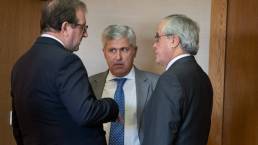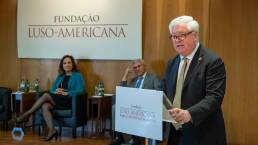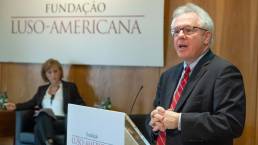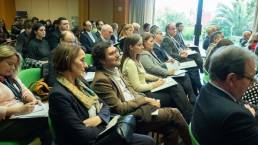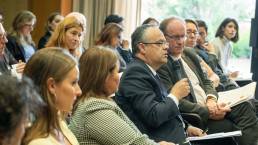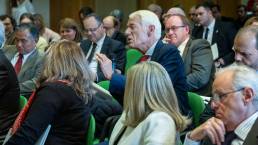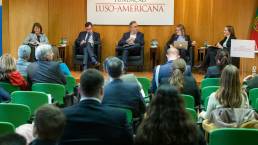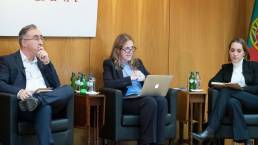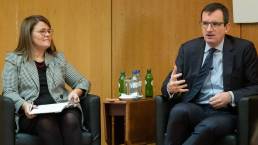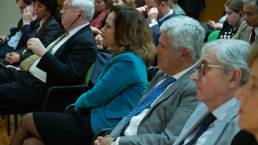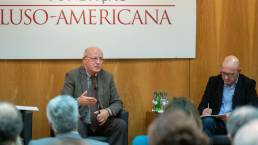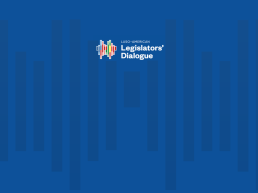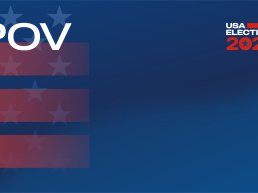An afternoon devoted to the challenges faced by NATO, with leading figures such as Michael J. Murphy, Deputy Assistant Secretary at the US State Department, Augusto Santos Silva, Portuguese Minister of Foreign Affairs, and Tom Wright, of the Brookings Institution.
On November 18, FLAD, together with the Portuguese Institute of International Relations (IPRI), marked NATO’s 70th anniversary, with a conference that brought together national and international policy makers and experts to discuss NATO’s role from its founding up to this day.
At the opening of the conference, FLAD’s president, Rita Faden, stressed NATO’s ability, against all expectations, to reinvent itself and at every moment answer the great threats it met, from the Soviet Union, through 9/11, to the challenges that the Alliance faces today.
“NATO is not an obsolete alliance, nor a trade agreement. NATO is an enduring alliance between Western democracies. It is an irreplaceable pillar of the international order.”
Nuno Severiano Teixeira, the director of IPRI, pointed out some of these challenges, noting NATO’s ability to respond to them and rejecting the idea that NATO is “brain dead,” as argued by French president Emmanuel Macron.
The conference was attended by US Ambassador George E. Glass and Michael J. Murphy, Deputy Assistant Secretary of the US State Department, who affirmed the United States’ commitment to invest in NATO. He also stressed the need for enhanced political cooperation within the alliance and with the Mediterranean as the only ways to address the Russian threat:
“We have to explain to our citizens the importance of investing in defense.”
A panel on the theme “NATO and European Security” also took place. In it were discussed the great threats to the Alliance’s democratic order and the current differences in political narrative within NATO.
- Patricia Daehnhardt stated that “NATO is more relevant today than it has ever been in the post-Cold War period”, given the current context of disorder and uncertainty.
- Thomas Wright drew attention to the need for political leaders on both sides of the Atlantic to commit themselves to the alliance, stating that, beyond the flag of the 2% defense spending, “we need a positive agenda that deals with the issues that people care about.”
- Lívia Franco stressed the importance of consensus in NATO’s strategic concept and said that, in action, more than in words, the commitment with NATO among the allies remains strong: “NATO has not changed substantially; the world has changed substantially.”
- Ana Santos Pinto focused on the need to strengthen confidence and the sharing of a common perception within a broad political commitment, arguing that there is no alternative to NATO.
The closing speech was delivered by Augusto Santos Silva, Portugal’s Minister of Foreign Affairs. Santos Silva reaffirmed the Portuguese commitment to the strengthening of NATO’s European pillar, namely through the increase of European defense capabilities:
“European defense capabilities must be increased. And, yes, European security and defense policy needs to be improved. But its aim is not to replace NATO or to create an alternative collective defense structure in Europe, but to strengthen NATO’s European pillar.”
Overall, there was a consensus within the different interventions during this celebration of NATO’s 70th anniversary in the fact that, despite the difficulties in the current political narrative, the members of the Atlantic Alliance still share common interests, defend common values and face common challenges that have to be tackled through NATO.
Related Posts
14 de June, 2024
8th Legislators Dialogue brings together 19 Portuguese-American elected politicians in Lisbon
Between June 17 and 18, FLAD brings…
23 de May, 2024
POINT OF VIEW: New Youth Contest to Reward Essays on U.S. Elections
Young people between the ages of 18 and…
26 de April, 2024
Five thesis selected for the final phase of the FLAD Political Science Award
Because of the high quality of…

